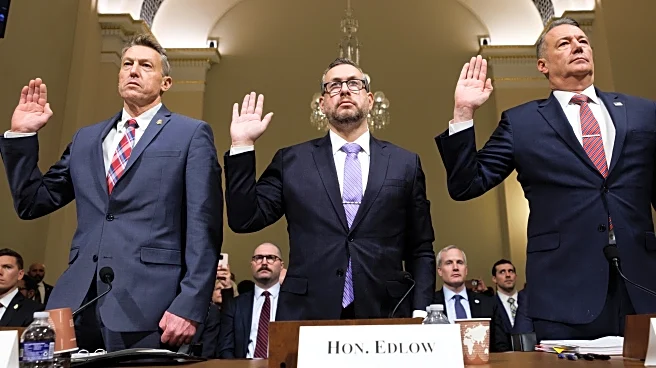What's Happening?
The U.S. budget deficit increased by 20% in July compared to the previous fiscal year, despite record income from President Trump's tariffs. Treasury Department data shows a 273% increase in customs revenue, amounting to $21 billion. However, increased federal spending, including interest payments on public debt and Social Security cost-of-living adjustments, continues to outpace revenue. The national debt is approaching $37 trillion, raising concerns about the long-term economic impact. While tariffs are intended to improve the government's balance sheet, they may not significantly reduce the deficit as promised, potentially leading to fewer job options and higher inflation.
Why It's Important?
The rising budget deficit highlights the challenges of balancing federal spending with revenue generation. While tariffs have increased customs revenue, they have not offset the growing deficit, which could lead to economic consequences such as higher interest rates and inflation. The situation underscores the complexity of using tariffs as a fiscal tool and the need for comprehensive economic strategies. The deficit's growth also raises questions about the sustainability of current fiscal policies and their impact on future economic stability.
What's Next?
The Trump administration aims to negotiate more trade deals to increase tariff revenue and address the deficit. However, the effectiveness of these efforts remains uncertain, as the economic impact of tariffs continues to evolve. Policymakers may need to consider additional measures to manage the deficit and national debt, balancing short-term revenue gains with long-term economic health. The administration's focus on trade negotiations and fiscal policy adjustments will be critical in shaping the U.S. economic landscape.











